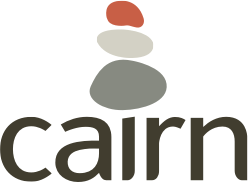Written by Lisa Wall, Middle School Health Teacher and Dove Self-Esteem Project Cadre Trainer in collaboration with Allison Sabb-Glenn, Shelly Klutz, Susan Elswick, EdD, Dove Self-Esteem Project Cadre Trainers
Some students focus on what their peers think, how they should dress, how they should look, and the latest being promoted on social and professional media to the degree that it may be harmful to their mental, emotional or physical health. As these things relate to body confidence and self-esteem, the Dove Self-Esteem Project can support students to develop positive body confidence and self-esteem. At its best, it is a team effort between educators. In order for students to receive optimum instruction on the Dove Self-Esteem Project (DSEP), there needs to be collaboration within the staff. This seems like a fairly easy solution, but with the demands that educators have on them – such as meeting their grade-level standards or frameworks or staying in line with their curriculum map – this may be difficult, but absolutely possible. This article will provide helpful tips on how to collaborate to support your students’ self-esteem and emotional well-being best.
The best approach to involve more students with DSEP could come in the form of collaboration between the school health educator, the school counselor, and the school nurse. If these three work together, the possibilities are endless.
Let’s briefly look at the three professionals in this triad. The health educator may have daily interaction with students helping them increase knowledge and develop skills that will guide them to health literacy. However, there are many schools, especially middle schools, that do not have a designated health educator or even a school nurse. Let’s pretend in this case that the school does have all three of these important people in place!
The school counselor plays an integral part in a student’s education and helps them thrive in the school environment and at home. If the school counselor begins to notice a student showing up to their door more often than they are in class, the counselor may discover a bigger issue of what is going on with this student. If the student is having a hard time mentally or emotionally, related to peer or appearance pressures, this is when DSEP tools could be used to help the student realize that they are an individual and they don’t need to be like anyone else. They have their own unique talents and abilities, and Dove Self-Esteem Project lessons can help them realize this.
The school nurse is the other valuable resource whose role is to care for the student’s physical health and to a degree, emotional and mental health, allowing students to succeed in the classroom. They often see the same students as the counselor and if these professionals are working together, they can definitely help the student. Many students will seek the school nurse to say they are sick or not feeling well, hoping to go home or stay out of a particular class for a while. The reasons could be that a student makes fun of them for their sense of style, there could be hygiene issues, or simply that they don’t get along with another student.
These three professionals can plan together and fully discuss the nature of the Dove Self-Esteem Project and how it can help impact their students. Especially those students who are frequent visitors to the school counselor and school nurse. If you were to carefully monitor these students, they more than likely go to both offices quite often.
These students may benefit from the implementation of the DSEP Confident Me! lessons in a classroom setting versus one-on-one engagements. Though one-on-one engagements are important, teaching the lessons within a class setting may help a student who may not be as forthcoming about self-esteem issues by listening and engaging with peers. The lessons help boost self-esteem by allowing students to be more conscious of their own self-esteem and the self-esteem of their classmates and how each contribute to both positive and negative body talk and appearance pressure conversations.
A collaboration between the health educator, school counselor or school nurse while using the DSEP Confident Me! single and five-lesson curriculum, DSEP At Home Lessons, or 31-Day Calendar Challenge may strengthen students’ grasp of the skills and knowledge needed to develop or increase body confidence and self-esteem. For additional information and to download free Dove Self-Esteem Project tools, visit www.Dove.com/selfesteem or contact us at info@cairnguidance.com.

Leave a Reply